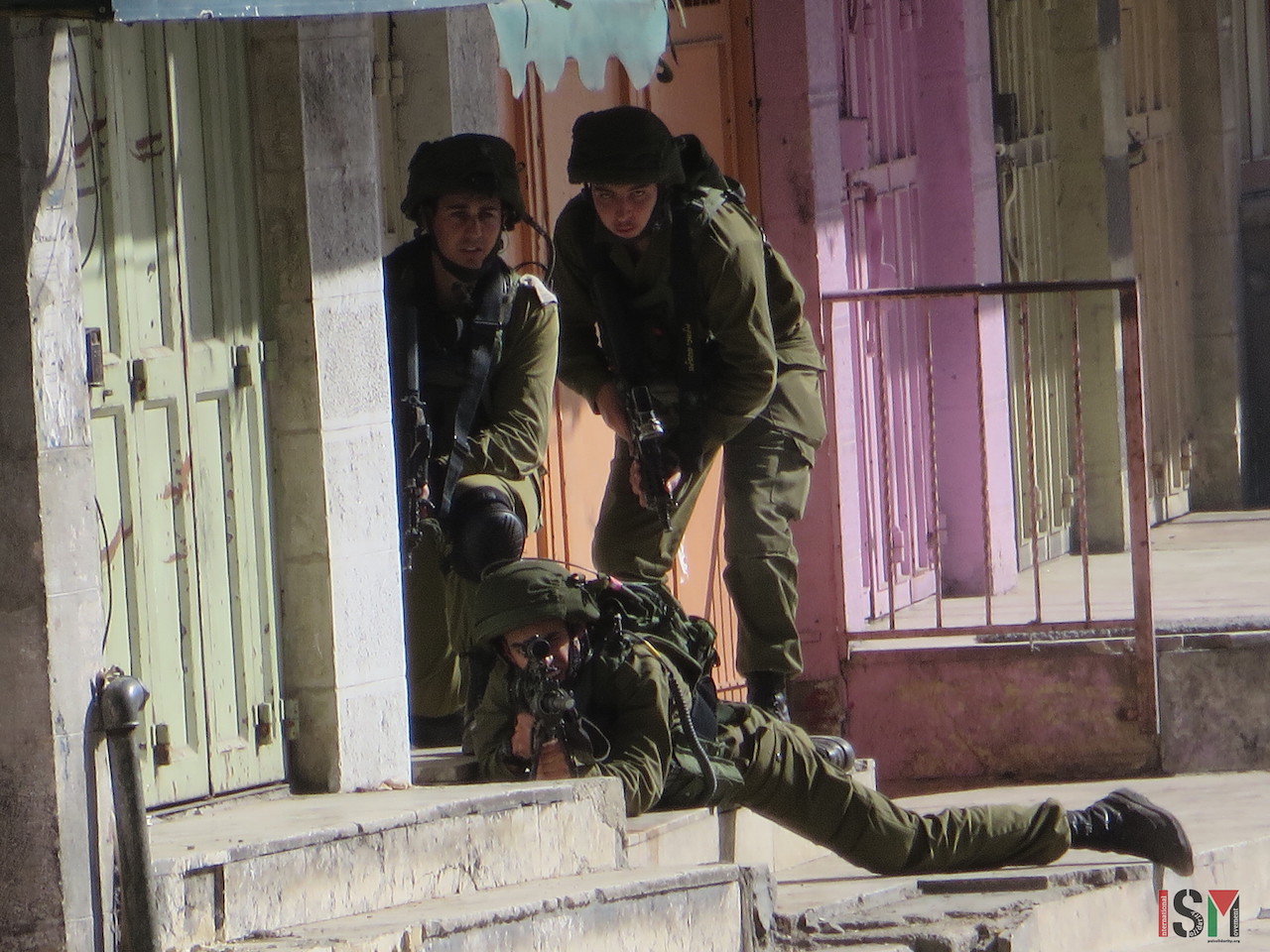-
A decade of civil disobedience in my West Bank village
2nd March | Abdallah Abu Rahma – originally posted on Haaretz | Bil’in, Occupied Palestine On February 20, 2005, we, residents of the West Bank Palestinian village of Bil’in, set forth, accompanied by supporters from around the world, and marched to the west side of the village. Israeli army bulldozers had begun uprooting olive trees there and wiping out the place […]
-
Four Palestinians and one female German demonstrator shot with live ammunition at “Open Shuhada Street” protest
28th February 2015 | International Solidarity Movement, Khalil Team | Hebron, Occupied Palestine On February 27 in occupied Al-Khalil (Hebron), Israeli forces fired live ammunition towards nonviolent protesters participating in the annual Open Shuhada Street demonstration, injuring five including four Palestinian activists, one of them 17 years old, and one German citizen. More were also injured by rubber-coated steel bullets […]
-
Dancing children attacked by Israeli forces
25th February 2015 | International Solidarity Movement, Khalil Team | Hebron, Occupied Palestine On the 24th of February in occupied Al-Khalil (Hebron), Israeli forces opened fire on dancing Palestinian youth, firing tear gas and throwing stun grenades at group of young children performing a traditional Palestinian dance as a form of protest in front of Shuhada checkpoint. The fifteen […]
Action Alert An Nabi Saleh Apartheid Wall Arrests BDS Bethlehem Bil'in Cast Lead Demonstration Denial of Entry Ethnic Cleansing Farmers Gaza Global Actions Hebron House Demolition International law Israeli Army Jerusalem Live Ammunition Nablus Ni'lin Prisoner Ramallah Rubber-coated steel bullets Settlement Settlers Settler violence Tear-Gas Canister Video



